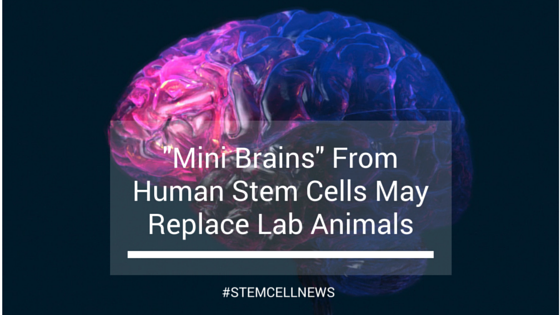
Animal testing has been used by scientists for hundreds of years to test surgical procedures and new drugs. Unfortunately, there are some moral and ethical concerns about injuring or killing animals to obtain scientific results.
Thankfully, human stem cells may soon be used to help scientists end animal testing. Scientists from the Johns Hopkins Bloomberg School of Public Health have used human stem cells to create tiny brains that contain the cells and structure of real human brains. According to the researchers, “This is in the best interest of patients and for saving animals.”
The discovery may allow researchers to use mini human brains to test if drugs are effective. The mini brains may also be useful for determining how human brain diseases are caused and how the disease progresses.
The greatest benefit obtained from using the mini brains is that they are a realistic representation of the human brain. When using a rodent brain for testing, there may be significant differences in how drugs interact.
Lead author of the research, Thomas Hartung explains that, “Ninety-five percent of drugs that look promising when tested in animal models fail once they are tested in humans at great expense of time and money.”
Researchers used human stem cells to create mini balls of cells. They were then reprogrammed back to their embryonic state before being prompted into becoming brain cells. The resulting mini brains are extremely small, measuring about 350 micrometers.
Mini brains will be very useful for studying neurological diseases including Alzheimer’s disease, Multiple Sclerosis and Parkinson’s disease. Scientists will be able to take stem cells from people who already have the disease, convert the cells into brain cells, then study the tissue to see how the individual’s disease progresses. It may also lead to personalised medical treatments for patients with certain brain diseases.
{{cta(‘010124f3-c9bc-4a23-b9fc-74953e6288c9’)}}
{{cta(‘fec594e9-5433-4350-9180-2bdd371eb399’)}}


